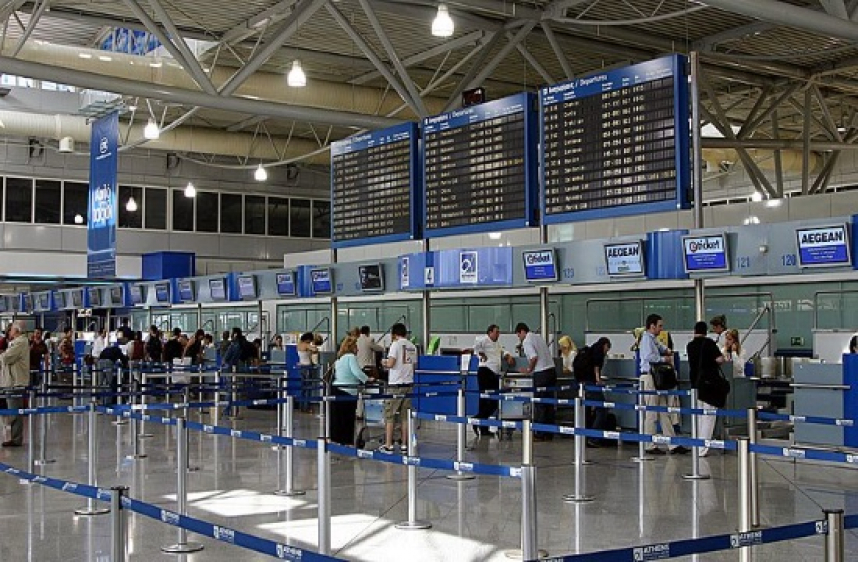
The Hellenic Civil Aviation Authority (HCAA) has announced the extension of travel restrictions for international flights landing in Greece until 6 am, on Thursday, July 15.
HCAA’s aviation directive (NOTAM) was issued as part of the Greek government’s efforts to limit the spread of the coronavirus (Covid-19) pandemic in the country.
Who is allowed entry to Greece
People traveling for essential reasons and travelers from the following countries* are allowed to enter Greece – provided they have the required documentation – without the requirement for subsequent self-isolation:
EU & Schengen Area countries, Australia, Northern Macedonia, United Arab Emirates, United States of America, United Kingdom, Israel, Canada, Belarus, Bahrain, New Zealand, South Korea, Qatar, China, Kuwait, Ukraine, Rwanda, Russia, Saudi Arabia, Serbia, Singapore, Thailand, Bosnia and Herzegovina, Montenegro, Albania, Japan, Lebanon, Azerbaijan, Armenia, Jordan, Moldova, Brunei, and Kosovo.
* Regulations concerning countries on the admission list are subject to change by the Greek authorities when renewed assessments are made based on epidemiological data from the country of origin.
Entry requirements
Greece will allow entrance to travelers that have filled out the Passenger Locator Form (PLF) one day before travel. The PLF is mandatory and must be filled out by all travelers, regardless of their nationality.
Passengers from abroad must also have one of the following:
1. a vaccination certificate, stating that 14 days have passed since full vaccination for Covid-19. Vaccination certificates must be issued by a public authority and in one of the following languages: Greek, English, French, German, Italian, Spanish or Russian. The name on the vaccination certificate must match the name on the passport and also include, the type of vaccine administered, the number of doses, and the dates they were administered.
2. a negative PCR test is performed within 72 hours before travel or a negative rapid antigen test is performed within 48 hours before travel. Negative test results must be issued by an authorized laboratory and in one of the following languages: Greek, English, French, German, Italian, Spanish or Russian. The name on the vaccination certificate must match the name on the passport. (The rule is in force for children over the age of 12.)
3. recovery certificate. Travelers can present a medical/recovery certificate issued thirty days after they first tested positive for Covid-19 (the certificate is valid for entry to Greece 180 days after its issue date). The certificate must be issued by a public authority or a certified laboratory in one of the following languages: English, French, German, Italian, Spanish, or Russian. (The rule is in force for children over the age of 12.)
4. an EU Digital COVID Certificate in digital or print form which will contain information on whether passengers have been vaccinated against Covid-19 or have a negative PCR test performed within 72 hours before travel or a negative rapid test performed within 48 hours before travel or have recovered from the virus.
Rapid testing on arrival
Every traveler who arrives in Greece, regardless of the certificate in their possession, may undergo a random health screening (depending on the data provided on the PLF forms). If a passenger is selected for a rapid test and is positive for the coronavirus then he/she must quarantine for a total of:
- 7 days if the passenger has been vaccinated against Covid-19
- 10 days if the passenger is unvaccinated.
In both cases, passengers will have to take a PCR test on the last day of their quarantine. If the test is negative the mandatory quarantine ends.
Arrivals from Russia
All travelers from Russia arriving in Greece from June 30 must have a negative PCR test performed within 72 hours before travel or a negative rapid antigen test performed within 48 hours before travel.
The measure is mandatory and applies to all travelers from Russia, whether they are vaccinated or not.
In addition, all travelers from Russia must undergo a rapid test at the airport upon arrival in Greece. The measure is mandatory.
Travelers in need of information regarding specific details on the travel rules for passengers of international flights are recommended to contact their embassy, airline, or the General Secretariat for Civil Protection.